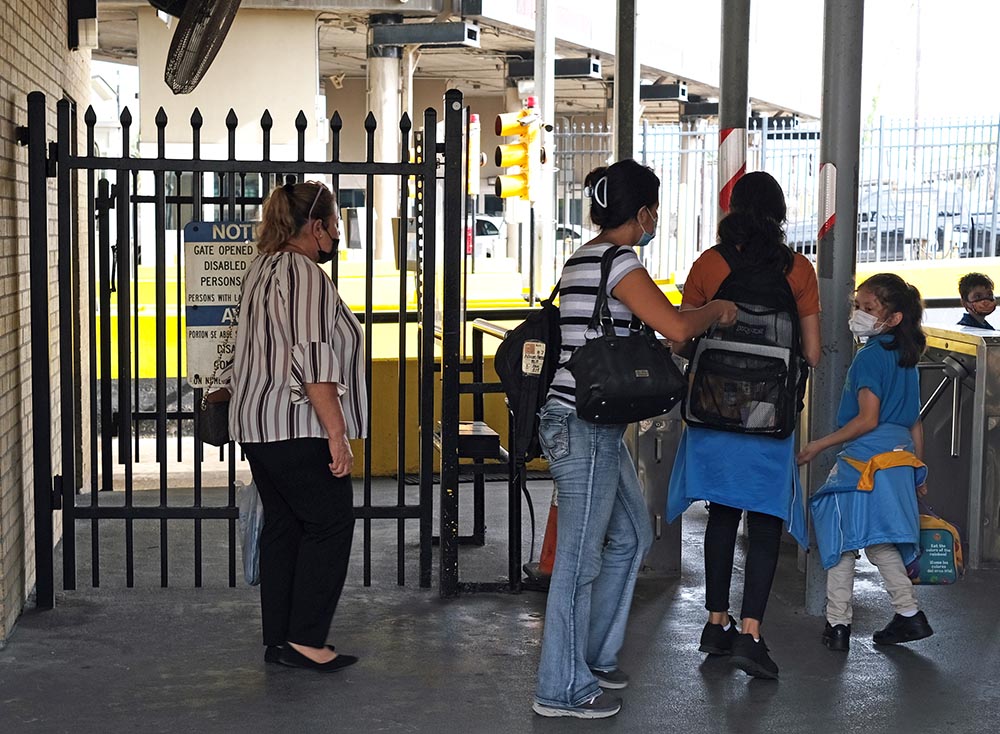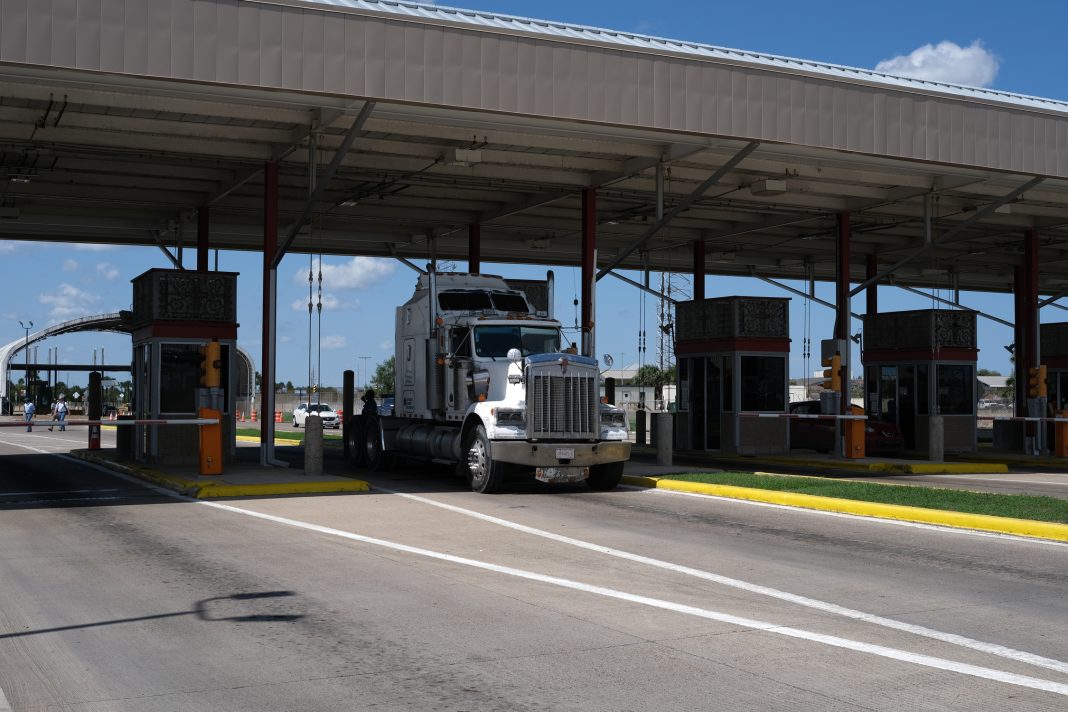|
Only have a minute? Listen instead
Getting your Trinity Audio player ready...
|
The Texas Border Coalition on May 5 announced its support for bipartisan legislation to modernize U.S. land ports of entry and reform the nation’s immigration policies.
One piece of proposed legislation is the Land Ports of Entry Modernization Trust Fund Act, authored by Democratic U.S. Representatives Vicente Gonzalez, Henry Cuellar, Veronica Escobar and Republican Rep. Tony Gonzalez, all of Texas.
It would establish a trust fund for the construction of new land ports of entry and expand and upgrade existing ports, procure technology to inspect and process traffic moving through the ports, and hire additional U.S. Customs and Border Protection personnel.
The act would also establish a Land Port of Entry Modernization Oversight Board that would advise the Department of Homeland Security on how the trust fund should be used and to review the fund’s expenditures. Money for the fund would come from customs and immigration user fees and surcharges plus, ideally, annual appropriations from Congress.
David Stout, El Paso County commissioner and TBC chairman, called the legislation a “crucial step towards ensuring secure and efficient border management.”
“Modernizing our port of entry infrastructure, utilizing advanced screening technologies, and focusing resources on genuine security risks allows us to strike a balance between openness and vigilance, while facilitating legitimate trade and travel,” he said.
Vicente Gonzalez said the legislation is a good first step to address port-of-entry issues in what he described as one of the fastest growing regions of the country.
“We struggle enough with operating bridges to get our products and services back and forth efficiently,” he said. “We need to be united on a plan. Our largest trading partner is next door, and we need to make it easier to move products and services back and forth across the border. We also need to have cutting-edge technology. … Part of the investment goes to screen the vehicles that are coming back and forth and to better screen them.”
He noted that more than 90 percent of the fentanyl entering the United States illegally from Mexico is coming through ports of entry and is not — contrary to some political rhetoric — being carried by migrants crossing the Rio Grande.
“We need to expand ports of entry,” he said. “We need to ensure they have the technology to stop (fentanyl). In fact, I’ve been promoting that (scanning) technology both ways because there’s I think there’s a lot we can do to stop money and guns and ammunition crossing the border south. These resources not only help with trade but help protect Americans from drugs and cartel activity.”
Modernizing our port of entry infrastructure, utilizing advanced screening technologies, and focusing resources on genuine security risks allows us to strike a balance between openness and vigilance, while facilitating legitimate trade and travel.
If it becomes law, the legislation would bring hundreds of millions of dollars to U.S. ports of entry on the border with Mexico, Gonzalez said.
“South Texas and the Rio Grande Valley stand to benefit a lot from this bill,” he said.
The other piece of legislation backed by the TBC is the Dignity Act of 2023, sponsored by Democratic Rep. Veronica Escobar of Texas and Republican Rep. Maria Elvira Salazar of Florida. It would fund border infrastructure without paying for a border wall, increase the number of CBP personnel, and codify the new Shelter and Services Program for local governments and non-governmental organizations (nonprofits, for instance) that assist arriving migrants.
The bill also would provide $10 billion over five years to improve ports of entry, legalize 11 million undocumented residents, create a renewable legal statute for undocumented agricultural workers and provide a path to citizenship for Dreamers.
It would also reform asylum policies to prioritize migrant processing in Latin America, phase in E-verify requirements for businesses, mandate reporting for visa overstays, and reform temporary worker programs.

Stout called for embracing “inclusive immigration policies that uphold our values and harnesses the potential of individuals seeking a better life.”
“By providing a fair, efficient and comprehensive solution to our broken immigration system, we can build stronger communities, foster economic growth, and reinforce the ideals that make our nation great,” he said.
Gonzalez said the Escobar-Salazar legislation isn’t without flaws but argued that it’s a rare bipartisan opportunity to pass something on immigration reform and should be supported.
“That’s what I try to tell folks in the Hispanic Caucus,” he said. “There may be things that you don’t like in it, but there’s a lot of things that you do like. I think we need to make that compromise for so many people that are still living in the shadows, even our Dreamers that we haven’t been able to get a deal for. Is it perfect? Heck, no, but it’s something and I think we can build on that.”




